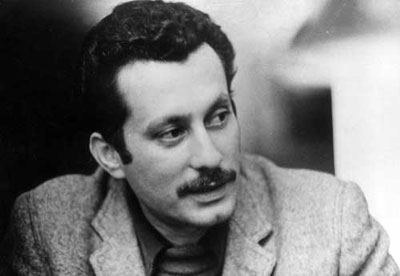 Many Palestinian writers have resorted to documenting the tragedy of their people caused by their displacement out of their indigenous homeland. Most novels written by Palestinian writers were adapted to feature films recording the Palestinian suffering and struggle to restore their inalienable rights to self-determination and the return of their usurped rights including the establishment of their independent state with Jerusalem as its capital and the return of the Palestinian refugees to their indigenous homeland.
Many Palestinian writers have resorted to documenting the tragedy of their people caused by their displacement out of their indigenous homeland. Most novels written by Palestinian writers were adapted to feature films recording the Palestinian suffering and struggle to restore their inalienable rights to self-determination and the return of their usurped rights including the establishment of their independent state with Jerusalem as its capital and the return of the Palestinian refugees to their indigenous homeland.
Ghassan Kanafani was one of the most prominent writers who were able to record the Palestine question from different perspectives casting light on two main issues: the tragedy of the Palestinians in Diaspora and their difficult life in camps, and the adherence of the Palestinians to their land and their readiness to offer sacrifices for their homeland.
“Men in the Sun”, Kanafani’s first novel adapted to a feature film, was an achievement of the drive to separate the literature of the resistance from straightforward realism, employing symbolism and intellectually forging the structure in the attempt to present the Palestine question outside the usual context.
It was followed by “What Remains for You” which deals with the story of Hamed and his sister Mariam who exchanged views about their pain in a shimmering desert and their feeling of estrangement far from their homeland. It is considered one of the earliest and most successful modernist experiments in Arabic fiction. Kanafani used multiple narrators – two of them, the clock and the desert, were inanimate. Hamed dreams of being reunited with his mother from whom he was separated in 1948. Hamed had fled to Gaza while his mother left for the West Bank. He tries to find her but becomes lost in the desert, crossing paths with an Israeli soldier. He is forced to avoid his original plan and turn to confront his enemy. Although he dies before locating his mother, he is in death reunited with his lost land. The thematic development reflects the change in political climate, and the initiation of the Palestinian armed struggle in the mid 1960s through the creation of Palestinian resistance movements.
Born in 1936 and died in 1972, Ghassan Kanafani was among the first Palestinian writers who mixed literature and politics creating a new literary genre called resistance literature. Born in Acre, Kanafani received a French missionary school education in Java, leaving for Lebanon to settle later in Syria, then Kuwait, following the war of 1948 and the displacement of hundreds of thousands of Palestinians from their indigenous Homeland.
Kanafani was assassinated on July 8, 1972, by a car bomb planted by Israeli agents. The explosion also killed his little niece.
Most Arab writers, who knew Ghassan, unanimously agreed that the Israeli occupation authorities were infuriated by his writings which had the same effect as the weapons directed to the Israeli army. Despite the elapse of forty years after his death, Ghassan’s novels and stories are still the torchlight guiding Palestinians to press ahead with their struggle until the achievement of their noble goals.
Kanafani was posthumously awarded the Lotus Prize for Literature by the Conference of Afro-Asian Writers. By the time of his death, he had published eighteen books, and left fragments of three novels that were published posthumously by his family and friends.
In fact Ghassan, along with other Palestinian writers such as Abdel Karim al-Karmi, Mohmoud Darwish and Tawfiq Zayyad, were the initiators of a new literary genre, namely the resistance literature which has been a sharp weapon that upset Israeli occupation authorities and pushed them to assassinate Palestinian writers and poets, because their writings are truthful expression of the legitimate rights of the Palestinians to self determination and liberation.
K.Q.

